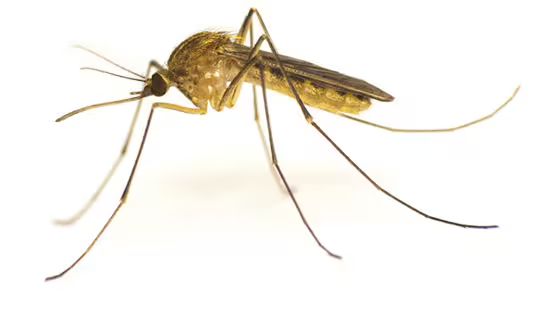Many people wonder: Do mosquitoes die or hibernate in winter? As temperatures drop and the days grow shorter, mosquitoes seem to disappear, leaving us with a brief respite from their buzzing and bites. However, the reality of what happens to mosquitoes during winter is more complex and varies depending on the species, location, and environmental conditions. In this article, we’ll explore the scientific explanation behind whether mosquitoes die or enter a state of dormancy, and how these survival strategies help them cope with the cold.

Understanding whether mosquitoes die or hibernate in winter requires examining their life cycle, physiology, and behavior. Different species of mosquitoes have different strategies for surviving cold weather.
Mosquitoes go through four distinct stages in their life cycle: egg, larva, pupa, and adult. The survival of mosquitoes in winter depends largely on which life stage is present as the weather turns cold.
Egg Stage: Some mosquito species, especially Aedes mosquitoes, lay eggs in water before winter. These eggs can survive harsh winter conditions by entering a state of dormancy. The eggs can withstand freezing temperatures and hatch when warmer weather returns in the spring. This form of dormancy is not considered true hibernation, but rather a form of diapause, a state of arrested development.
Larval and Pupal Stages: Mosquito larvae and pupae are typically not as resistant to freezing temperatures as eggs. In colder climates, these stages generally do not survive the winter. However, in some warmer regions or during milder winters, larvae and pupae may survive in sheltered areas like mud or leaf litter until spring.
The fate of adult mosquitoes during the winter months largely depends on the species. In colder regions, most adult mosquitoes do not survive the winter, as they are unable to tolerate freezing temperatures. However, some species, such as the Culex mosquitoes (which include the common house mosquito), have a unique survival strategy.
Culex mosquitoes, for example, enter a state of hibernation (technically referred to as diapause) when temperatures drop. Female mosquitoes seek out sheltered spots, such as basements, sheds, or other protected areas, and enter a hibernation-like state. During this period, their metabolic rate slows down, and they remain inactive until the temperature rises again in the spring.
Aedes mosquitoes, on the other hand, do not typically survive as adults during the winter. Instead, they lay eggs that can survive freezing temperatures and hatch when conditions become more favorable.
The phenomenon of diapause is central to understanding how mosquitoes survive the winter. Diapause is a period of suspended development that helps many insects, including mosquitoes, withstand extreme environmental conditions, particularly in regions with harsh winters.
During diapause, mosquitoes enter a state of metabolic dormancy where their physiological processes slow down significantly. This allows them to survive freezing temperatures and low food availability.
Aedes mosquitoes, for example, lay their eggs in standing water, but the eggs can survive even if the water freezes. Once temperatures rise, the eggs hatch, and the larvae emerge to continue their life cycle.
Culex mosquitoes, in contrast, may remain in diapause as adults. These mosquitoes seek out warm, protected areas to wait for spring, at which point they emerge, mate, and begin the next generation.
The survival strategies of mosquitoes are also influenced by climate patterns. Warmer winters in many parts of the world may allow mosquito populations to remain active throughout the year, while in colder climates, freezing temperatures significantly reduce their activity during the winter months.
In recent years, global warming has caused an increase in the frequency and duration of warmer winters. This can lead to a rise in mosquito populations in temperate regions, as mosquitoes are less likely to experience the cold temperatures that traditionally kept them dormant in winter. As a result, some mosquito species may remain active year-round, leading to an increase in mosquito-borne diseases during what was previously considered the “off-season.”
Some mosquito species have begun to adapt to changing climates by altering their breeding patterns and survival strategies. For instance, species like the Aedes aegypti, which is responsible for spreading diseases like dengue and Zika, may become active during non-traditional seasons if the temperature remains above freezing for extended periods.
| Mosquito Species | Survival Strategy | Life Stage During Winter | Explanation |
|---|---|---|---|
| Aedes mosquitoes | Diapause (eggs) | Eggs | Eggs can withstand freezing and hatch in the spring. |
| Culex mosquitoes | Diapause (adult females) | Adult females | Adult females hibernate in sheltered spots until spring. |
| Anopheles mosquitoes | Diapause (eggs) | Eggs | Eggs can survive freezing temperatures and hatch when warm weather returns. |
| Larvae and pupae | Usually do not survive winter | Larvae and pupae | Larvae and pupae generally do not survive freezing temperatures. |
| Warmer climates | Year-round activity | All stages | Mosquitoes may remain active throughout the winter in warmer climates. |
This table summarizes the primary survival strategies of different mosquito species and life stages during winter, helping clarify the question of whether mosquitoes die or hibernate during the colder months.
To summarize, whether mosquitoes die or hibernate in winter depends on the species and environmental conditions:
Aedes mosquitoes generally survive as eggs that enter diapause during the winter months. These eggs can withstand freezing temperatures and hatch when warmer weather returns.
Culex mosquitoes and other species may survive the winter by entering diapause as adults, often seeking out sheltered environments where they remain inactive until spring.
In colder climates, mosquito larvae and pupae are less likely to survive the winter, while in warmer areas, mosquitoes may remain active throughout the year.
Understanding the winter survival mechanisms of mosquitoes helps us better prepare for the risks associated with these insects, especially in light of changing global climate patterns.
animal tags: Culicidae
We created this article in conjunction with AI technology, then made sure it was fact-checked and edited by a Animals Top editor.